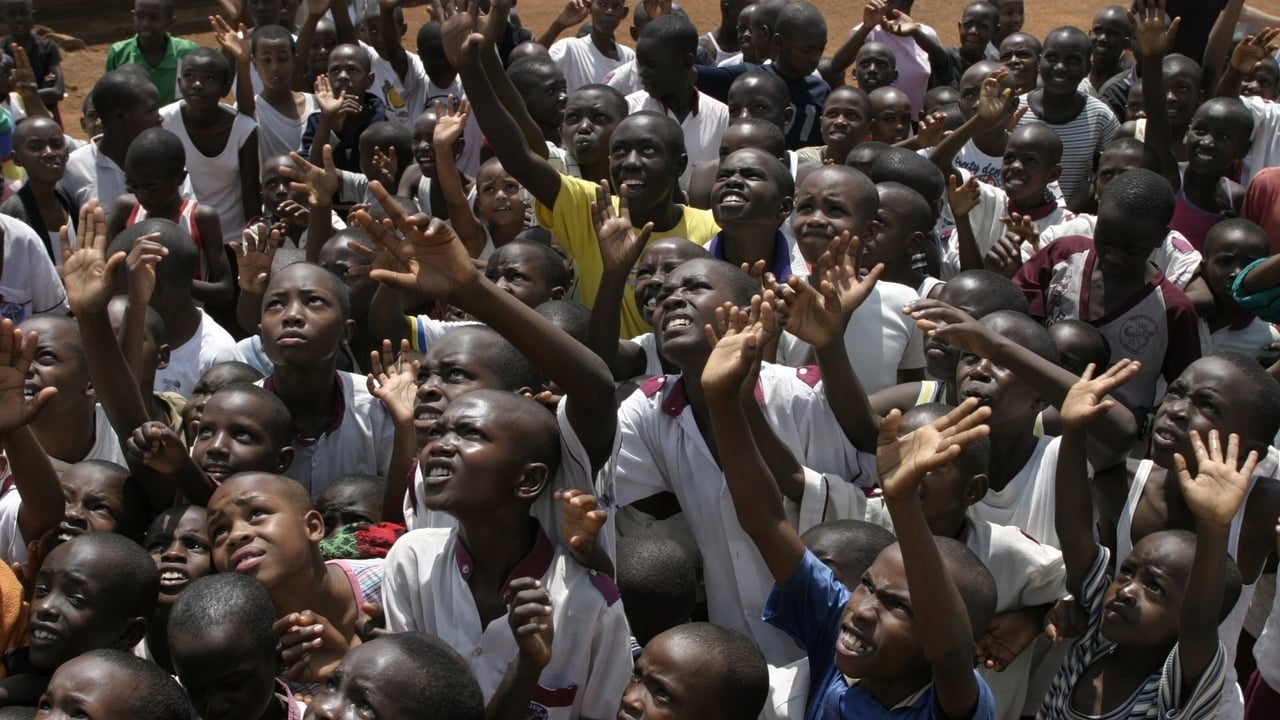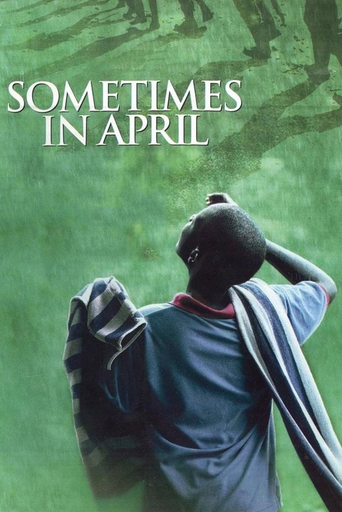

Very well executed
... View MorePurely Joyful Movie!
... View MoreDon't listen to the negative reviews
... View MoreIt really made me laugh, but for some moments I was tearing up because I could relate so much.
... View MoreI was very pleased that both this movie, as well as "Hotel Rwanda", were released. After seeing the horrors of Nazi Germany in the 1940's, it's hard to believe the world would allow another Genocide on such a mass scale to occur again. This version of events wasn't as glamorous as "Hotel Rwanda", however the script and acting were incredible. I recently watched this movie again (after seeing it when it originally aired on HBO) and the film creates as much of an impact now as it did years ago.In addition to "Hotel Rwanda" and "Sometimes in April", there are many strong documentaries about this dark period of history. I've recently watched "Ghosts of Rwanda" for a second time and was amazed at the amount of factual data contained in that documentary as well.
... View MoreSometimes in April is not boring, however it's way far from being introspective and realistic.Pedantry oozes from every inch of the celluloid. The director hasn't given enough effort to explain the "why". It's only about the "what" and a reduced, possibly one-sided version of the "what" it is.The film is heavily oriented towards western audiences (it pushes the right "western" buttons). Some things that resonate with the western mentality simply do not register with Rwandan audiences. Some other things that touch on local psyche and actually explain the flow of events in Rwanda are not even explored here.So can the viewer learn anything about the conflict from this movie? I'm not sure at all. The only safe outcome is that war is bad, but you knew that already.
... View MoreWhen I first watched 'Sometimes in April', I can honestly say it affected me more than any other film ever has. It traumatised me, I started to question human beings. I always, rather naively thought that all humans were intrinsically good and just did bad things from time to time, or even had an upbringing that made them the way they were. But this film taught me things aren't always so black and white. The Rwandan Genocide happened for no reason. Hundreds of thousands of people were ruthlessly murdered, for nothing. The film itself seemed to portray the idea that all this killing simply happened to satisfy a blood lust, nothing else. I can say that I have no idea why anyone would want to harm their fellow man in such an atrocious way.Now to the film itself. The soundtrack to the film was extremely well fitted. I could in no way fault the acting, and the direction was well done. The only fault I could possibly give it, and this is at a stretch, was it got confusing at times as the film would jump from future to present without telling you it had. That was obviously hard to follow.Certain scenes in the film were very difficult to watch. And when I went to see how much the film was to buy on the internet, it came up as a PG (in UK). This disturbed me as I'm 18 and was strongly affected by this film. I would never let anyone under the age of, at the very least, 15 watch it. This is not because its gory (although thats an obvious factor), or because of the obvious strong issues, but because it is true. Its one thing watching 'Saw' for entertainment value (I don't see the appeal myself), but its another to watch a true account of what actually happened. They left nothing out. As a watcher you feel like you were actually there witnessing these atrocities.Although devastating to watch, and not for the faint of heart, I am still glad I saw this film, even if it was just to educate myself. I felt I had to know and no other film has better betrayed the Rwandan Genocide than this one.
... View MoreI've seen both Hotel Rwanda, Tears of the Sun and Schindler's List. If you liked any of those movies, this is a must see. All the civil wars and violence around the globe cry out for this movie to be mandatory viewing for every human being in the world community. With all our advances in technology, information and science, we've learned nothing. We still resort to violence as a means of solving our problems, when in the end we use negotiation and understanding to extricate ourselves from war. Inhumanity, racial and ethnic hatred, bigotry and ethnic cleansing (genocide) are always lurking just beneath the surface. Shame on the WORLD for letting such atrocities as the Rwandan genocide and all others like it occur! (That includes the Jewish holocaust of WWII.) Mass murder of innocent and defenseless civilians doesn't happen in obscurity. It occurs right under our noses, precisely BECAUSE we say and do nothing! Yet, we're willing to die by the thousands to preserve our access to oil. Shame on the world!
... View More